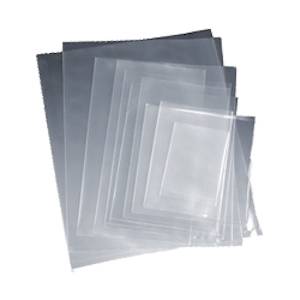LDPE Plastic Bags
LDPE plastic, or low-density polyethene, is a versatile polymer known for its lower density and increased resistance due to the extensive branching of short and long-side chains in its polybag structure.
The manufacturing process of LDPE involves high pressure (1000-3000 bar) and low temperature (80-300°C) conditions through free radical polymerisation. This process includes the consecutive addition of unsaturated monomer molecules to an active, free radical centre.
Enhance Resistance and Lower Density
LDPE has high processability, high impact strength at low temperatures, chemical resistance, electrical insulation properties, good weatherability, low water absorption, and transparency in thin foil film. Moreover, LDPE complies with FDA regulations, ensuring its safety for contact with food products.
LDPE is affordable, lightweight and weatherproof. It is also an insulator, making it suitable for protecting electrical equipment without causing electrical sparks that could potentially damage electronics.
Recyclable and Flexible Packaging
LDPE is highly flexible and transparent, allowing easy processing and moulding into different shapes and sizes to meet diverse application requirements. LDPE is also recyclable, and recycled LDPE can manufacture relevant products such as shipping envelopes, compost bins, trash cans, garbage can liners, furniture, floor tiles, and more.
LDPE plastic is used in film-related applications and is categorised as the number 4 plastic. It is commonly used in producing food plastic bags, shrink wraps, stretch films, and other packaging solutions.
A wide array of customisation options is available for tailored solutions to meet specific requirements and preferences.
- Malleable and versatile
- Elastic and high tensile strength
- Non-Toxic
- UV Resistant
- Chemical Compatibility
- Water Resistance
- Thermal Stability
- Material: Low-Density Polyethylene (LDPE)
- Density: Lower density compared to HDPE
- Strength: Lower strength compared to HDPE
- Temperature Resistance: Lower temperature resistance compared to HDPE
- Manufacturing Process: Free radical polymerization
- Bar Pressure: Produced at high bar pressure (1000-3000)
- Temperature Range: Formed at a low-temperature range of 80ºC to 300°C
- FDA Compliance: Meets FDA regulations for food contact
- Transparency: Transparent in thin foil film
- Tearing Resistance: Resistant to tearing and punctures
- Lightweight: Easy to handle and transport
- Recyclability: Recyclable, contributing to waste reduction
- Chemical Resistance: Resistant to alcohols, dilute alkalis and acids
- Protection: Protects against moisture, dust, dirt, oil, and grease


